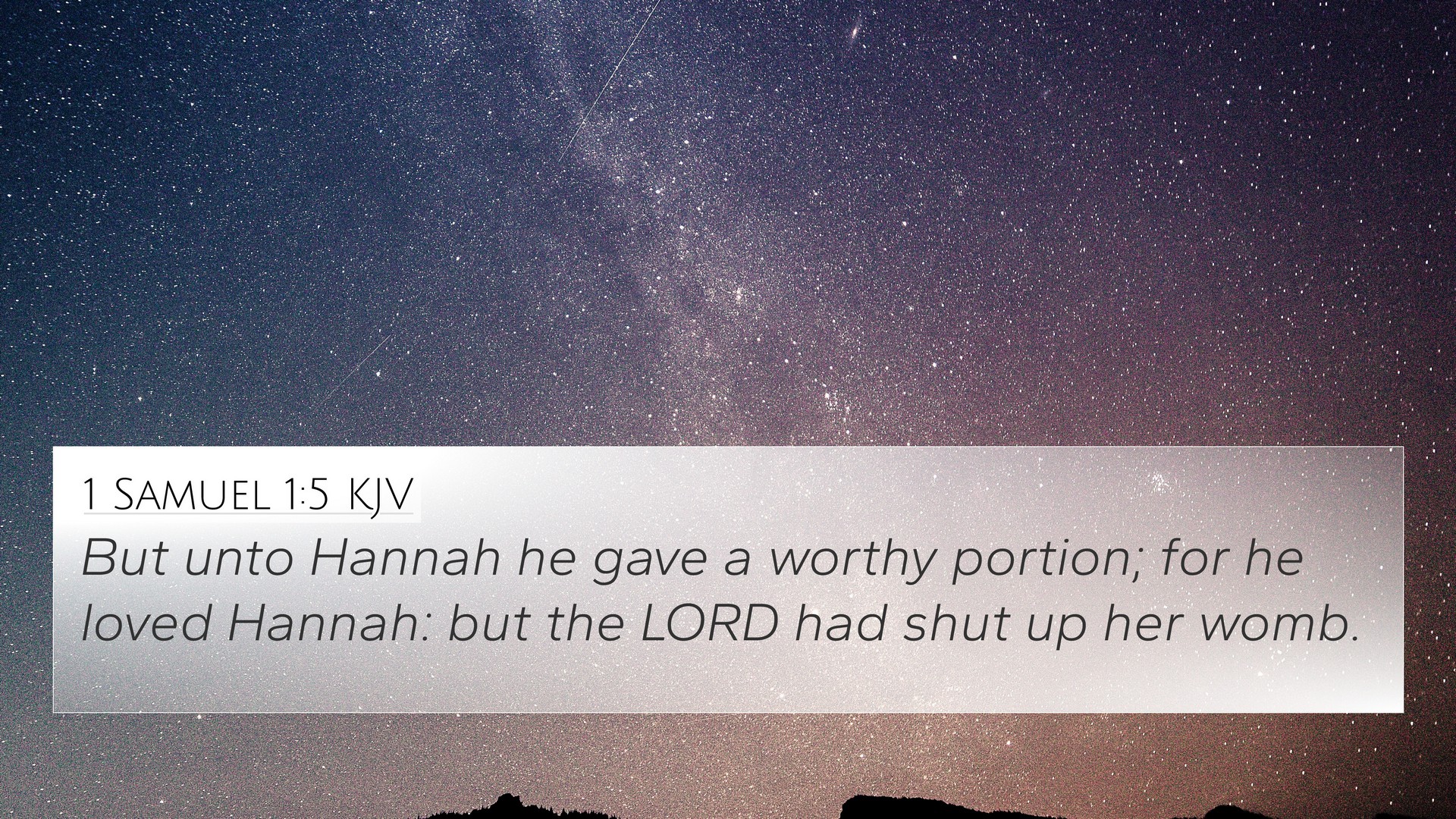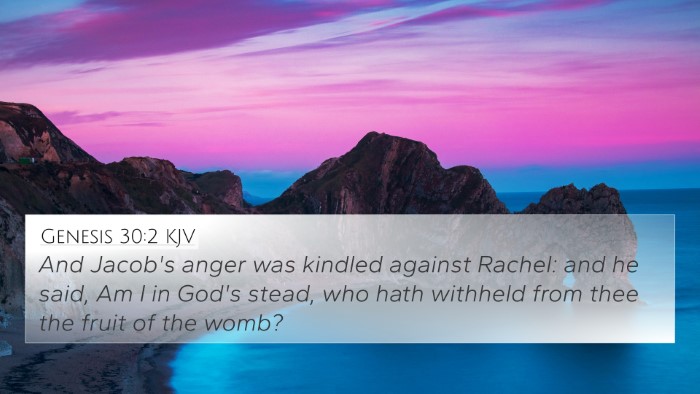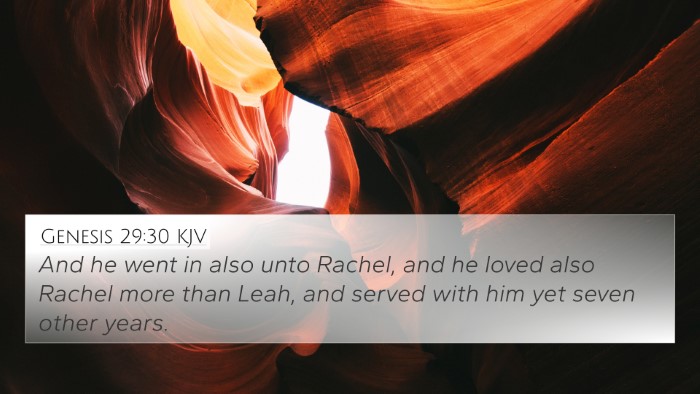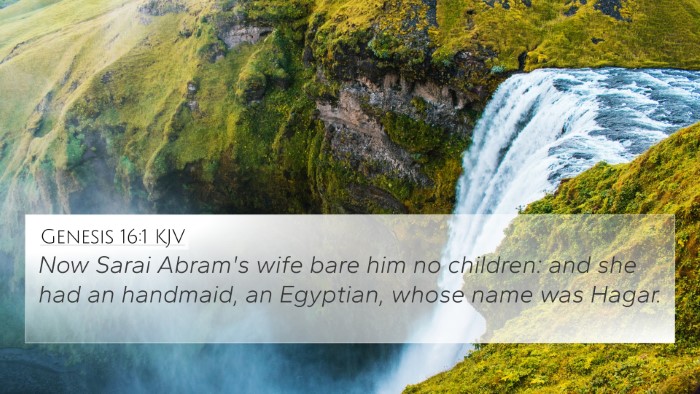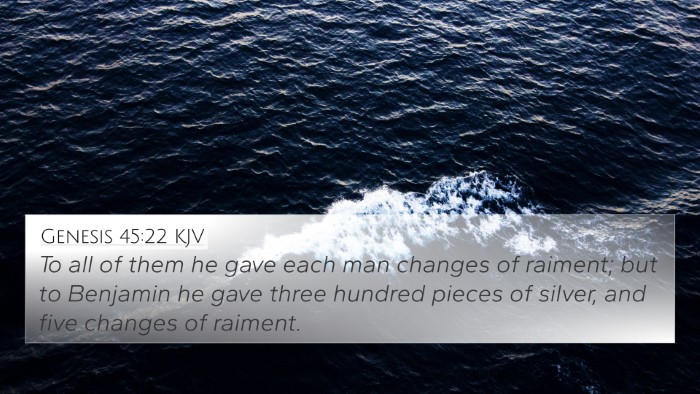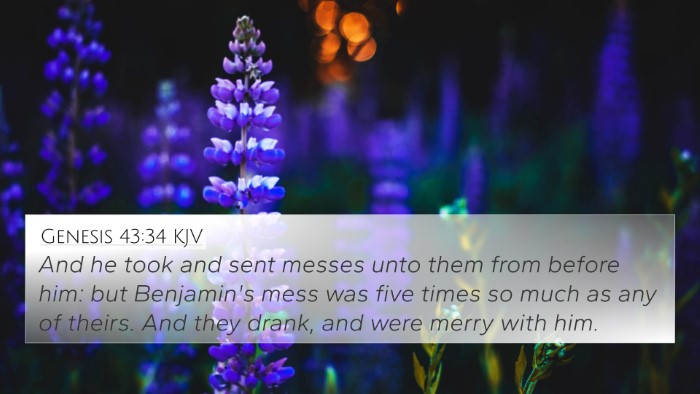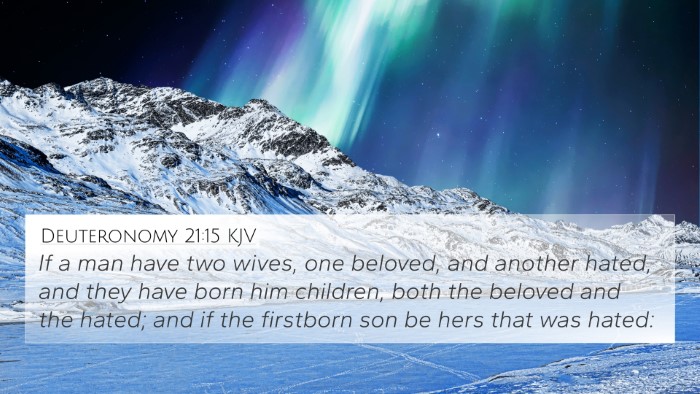Understanding 1 Samuel 1:5
Verse Text: "But to Hannah he gave a double portion, because he loved her; though the LORD had closed her womb."
Summary of Meaning
This passage highlights the deep love and sympathy of Elkanah for his wife Hannah, who was deeply distressed by her inability to conceive. It also subtly introduces the divine aspect of Hannah's suffering, as it affirms that the Lord had closed her womb. This sets the stage for a powerful narrative of faith, prayer, and divine intervention.
Insights from Public Domain Commentaries
The insights drawn from Matthew Henry, Albert Barnes, and Adam Clarke offer a rich combination of theological reflection:
-
Matthew Henry's Commentary:
Henry emphasizes that Elkanah's act of giving Hannah a double portion was not merely a gesture of generosity but a manifestation of his tender affection for her amidst her sorrow. This act signifies a deeper relational understanding that even in affliction, one can find love and solace.
-
Albert Barnes' Notes:
Barnes notes the significance of God's sovereignty in the situation—Hannah’s closed womb is a divine act that ultimately serves a greater purpose. He surmises that this theme of barrenness leading to future blessing is prevalent throughout Scripture, emphasizing Hannah's eventual role in raising the prophet Samuel.
-
Adam Clarke's Commentary:
Clarke discusses the cultural context, explaining that polygamy was practiced, and thus the emotional strain on Hannah due to Peninnah's provocations was compounded by her childlessness. He elucidates the complexities of familial love and the distress of social shame associated with childbearing in ancient Israel.
Bible Verse Cross-References
In understanding 1 Samuel 1:5, it is essential to note several relevant cross-references that illuminate its themes further:
- Genesis 25:21: Isaac's prayer for Rebekah, who was barren, illustrating the motif of prayer and divine intervention.
- Genesis 30:1-2: Rachel's anguish over her barrenness provides thematic parallels to Hannah's plight.
- Luke 1:7: The story of Zechariah and Elizabeth, who also faced childlessness, underscores the persistence of faith amidst despair.
- 1 Samuel 2:21: The fulfillment of Hannah's prayer as she later gives birth to Samuel shows God's faithfulness.
- Hebrews 11:11: References Sarah's faith in conceiving despite her old age, linking back to the faith theme in Hannah's story.
- Psalms 113:9: God’s promise to make the barren woman a joyful mother, aligning with Hannah’s eventual fulfillment.
- Isaiah 54:1: Encourages the barren to rejoice, fully resonating with Hannah's eventual blessing.
Thematic Connections Across Scriptures
This narrative opens a dialogue with other scriptural accounts of women facing fertility struggles and emphasizes themes of faith, devotion, and God’s providential care. The interconnectivity of these passages aids in forming a comprehensive understanding of biblical teachings on suffering, prayer, and deliverance.
Cross-Referencing Biblical Texts
The practice of cross-referencing enhances the study of scriptures, providing a more profound insight into the implications and applications of biblical themes. Utilizing tools like a Bible concordance or a cross-reference guide can deepen one’s study and understanding.
Tools for Bible Cross-Referencing
- Bible Concordance: A valuable resource for locating specific terms and themes across the scriptures.
- Bible Cross-Reference Guide: Helps identify verses that correlate with specific themes, aiding in comprehensive study.
- Cross-Reference Bible Study: Encourages readers to analyze their findings and draw personal applications.
- Bible Chain References: A method of connecting verses through thematic links and principles.
Identifying Connections Between Old and New Testament
Understanding passages like 1 Samuel 1:5 requires recognizing how Old Testament themes resonate in New Testament narratives. For example, the concept of divine intervention in childbearing portrayed in both Hannah's and Mary's stories adds layers of meaning.
Conclusion
In summary, 1 Samuel 1:5 presents a poignant portrayal of relational love and divine purpose. By exploring related verses and employing effective cross-referencing methods, scholars and lay readers alike can uncover the rich tapestry of themes woven throughout scripture, illuminating God's character and His interactions with humanity.
